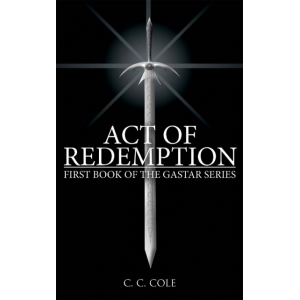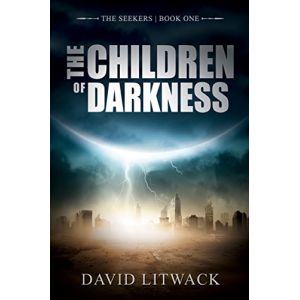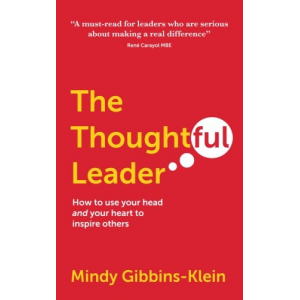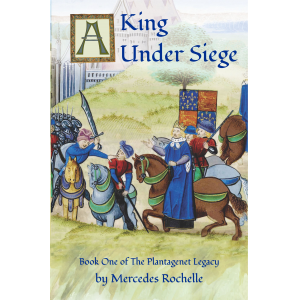Frost Magazine Interview with 'Philosopher/Poet
🔗 http://bit.ly/FrostINT- Author
- Book
- Story behind the book
- Media Links
- Reviews
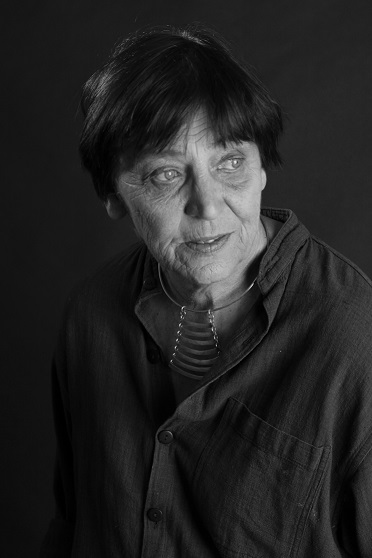
Philippa Rees
About
I was born in South Africa in 1941 and, looking back, realise my solitude (only child, single mother) was the root of all enrichment in other directions, necessarily spending school holidays on safaris with my beloved multilingual grandfather inspecting schools in the remote interior of Botswana, or later on horseback with a Austrian doctor attending mountain clinics in Lesotho. My galleon grandmother had known Cecil Rhodes, and Jan Smuts and was related to Elizabeth Barrett Browning and her family had had a significant role in the life (and death) of George Eliot’s stepsons. All this extravagant narrative washed over my head, and I believed none of it, until recently when the evidence of all of it came to light. I discovered that much too late. However independent minded women… and the virtues and necessity… of independence loomed large from an early age.
In early years I shuttled between rigid boarding schools trying to be Roedean and the wild freedom on Noel, my horse in Lesotho. Later consolation was to be found in literature, and two inspiring teachers, one English— The Metaphysical and Romantic poets, the other Theology and comparative religion.
At University after indecisively sampling five faculties( such a rich choice of culture, where did one begin?) I fell into Psychology and Zoology under both the seminal palaeontologist Raymond Dart and the ‘father of embryology’ B.I. Balinsky. Then marriage to a marine biologist/photographer involved deserted mangrove islands in Mozambique scouring mud flats for supper (lavish sea food, lobster, crab, and coconuts and cashews for an exiled ( (and bored) five star chef to turn into dinner- salary was a mattress and his helping) but starved for company. Then the sophistication of the Max Planck Institute with Konrad Lorenz in Bavaria, living in an 11th Century Mill with an unrepentant Nazi landlady (who, by then, should have been extinct but was alive and well and playing Schubert.) Then it was Florida (in love with an air-conditioner) until the experiences that led to Involution sent me into exile. En route I spent time waiting for a divorce in Yucatan where I met the girl commemorated in 'Shadow' I landed in Southampton with five pounds , two small children and an academic manuscript…
The academic underpinning of Involution was offered in lectures on Saints and Scientists at Bristol University, while building a home and an arts and concert hall for chamber music, raising four daughters, and living in Somerset, which continues. I have now short stories to attend to. They sit easier.
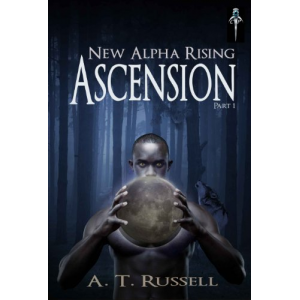
New Alpha Rising: Ascension Part I
Description
<p>Countless years ago, measured in thousands, the Gods came first. Monstrous creations were born of their frivolity. Like the Gods, some of the creations were peaceful, others not. Their duty to preserve the earth completed once more, however, the day came that the Gods had to leave earth. Unleashed and with loose regulation, the abominable creations left behind multiplied. In their midst, another conception came to be, and his kind would exist absolutely outside of the God’s purview.<br />Unmated, alone, and untrusting of others, Chatran was charged to go to a place and protect the father of a great child, yet unborn. This duty, however, was unknown to the most cognizant part of Chatran. Only the Beast, who resided within him, knew. As a result, the Beast led Chatran to Walhalla, North Dakota. Although his initial charge was to protect the father he found there, Chatran also gained a mate and Pack. With them, Chatran also found a new way forward, and started on a course that would lead to – New Alpha Rising: Ascension.</p>
Story Behind The Book
This is not a book I decided to write, it is the book that wrote my life, no matter how often I ran from it. A lashing devil of a book. All of the circumstances of my childhood, my country (South Africa) my family (divided on both cultural and racial lines) were relevant to perceiving its central patterns where similar things were true of the main characters, the mavericks. All of them were swimming against the tide and bridging irreconcilable seeming opposites. To make sure it lashed me to the wheel the mystical experiences that generated it took from me everything I thought I was, my family, children, country, and the good opinion of my mother, the only relation I had! Those experiences are described at the end, in the Afterword. But I got my own back by turning torture into poetry, and rescuing it by laughter. Life is much too important to take seriously.
Media Links
Reviews
<p><strong style="line-height:1.6em;"><u>Responses to the <em>'Theory of Involution'</em></u></strong></p> <p><em style="line-height:1.6em;">‘At long last I have read your typescript from A to Z. Needless to say I agree with much, even most of what you have to say. This implies an answer to your question whether it is right to rewrite and expand your theory. It would be definitely worth it. I feel less optimistic about the possibilities of publication.’ </em><strong><span style="line-height:1.6em;">Arthur Koestler, 1978.( The Act of Creation, Darness at Noon, and many seminal works)</span></strong></p> <p> </p> <p><em>‘I thank you very much for sending me your Theory of Involution. I have just begun to read it and it interests me enormously.… I certainly do share your views … and believe, like you, that so called evolutionary progress is explicable in scientific terms. I shall write again…’</em></p> <p><strong>Prof Konrad Lorenz, 1970. Nobel Prize 71 (Max Planck Institute, Bavaria)</strong></p> <p> </p> <p><em>‘Thank you so much for your letter and your manuscript on the “Theory of Involution”… I have had a good look at it and it seems you have a great deal to say that is of vital importance right now.…’ </em><strong>Irwin Schumacher, 1974, (Author of <em>Small is Beautiful: a study of economics as if people mattered.)</em></strong></p> <p> </p> <p><strong><u>Praise for <em>'Involution- An Odyssey Reconciling Science to God'</em></u></strong></p> <p> </p> <p><em>‘A brilliant and profoundly erudite epic charting the evolution of Western thinking processes, probing the frontiers of rationality and naturalism and opening up a deeper understanding of the nature of reality based on the reality of mystical experience. The author’s grasp of the principal elements of Western culture is masterly and her poetic narrative woven together with extraordinary subtlety. The detailed footnotes demonstrate a rare depth of perceptive scholarship. This is nothing short of a heroic intellectual tour de force and deserves the widest readership.’</em> <strong>(David Lorimer, Director Scientific and Medical Network)</strong></p> <p align="center">*</p> <p align="center"><span style="line-height:1.6em;">Philippa Rees wrote a book that is a rarity: it is on a controversial, actually hair- and eye-brow-raising subject, and it is totally sincere. And totally insightful. If you the reader are as brave as this author, you are in for a fantastic ride. Getting close to science as well as to God at the same time. That's no mean feat. Enjoy the ride - and the light! (<strong>Dr. Ervin Laszlo, Chancellor: Giordano Bruno University and author of 89 books- The Akashic Field, The Akashic Experience etc)</strong></span></p> <p><span style="line-height:1.6em;">'</span><em style="line-height:1.6em;">…Your journey through poetry is more than just an alternative treatment of the material you originally theoretically described; it is the very act of genius, which is able to treat the ambiguous nature of the world differently. The poetry is an alternative for how the world makes meaning from the ambiguous. It is a completely alternative direction for an exploration of the world in itself.</em></p> <p><em style="line-height:1.6em;">The scale of the feat you have thereby achieved by writing in poetry is immense. This goes far beyond the mechanistic notions of wholeness arrived at by some modern scientific authors. Your work reintroduces the aesthetic, beautiful, meaningful process that is poetry into science. The genius of involution is not just a mechanism of science relating to the whole but a completely different realisation of the beautiful, within living process.'</em></p> <p><span style="line-height:1.6em;">(<strong>Philip Franses. Editor. The Holistic Science Journal. Lecturer Schumacher College</strong>)</span></p> <p align="center">*</p> <p><em>"</em><em>Involution</em><em> is, at least in terms of 'subject', a daring, Dantean feat.</em></p> <p><em>Rees's profound notion that the evolution of humankind is made possible by the dormant dominions of evolutionary memory in our unconscious - the eponymous 'involution' - is, I would suspect, a theory Charles Darwin would have gratefully embraced as a curative to his own bleaker 'discoveries', which he initially emotionally and religiously resisted.</em></p> <p><em>That Rees has chosen to communicate her dialectic in the medium of sprung-rhymed blank verse is ingenious in itself, as well as being in the narrative spirit of the poetry of the ancients. </em></p> <p><em>Whatever one's poetic, religious or scientific response to Involution may be, what will be difficult for even the most scouring of critics to deny is it's scholastic vitality, compositional discipline and macrocosmic scope. Involution is a work of indisputably tall ambition, and an accomplishment which may well prove much more than the sum of its invariably exceptional parts".</em><span style="line-height:1.6em;">(<strong>Alan Morrison. Poet. Editor: The Recusant On-Line Magazine)</strong></span></p> <p><span style="line-height:1.6em;">"This is a marvelous, wise, unique work written with great flair and originality. Read it slowly and learn from it's truth".(<strong>Andrew Harvey. Author, Scholar, Mystic. Founder International Academy of Sacred Leadership)</strong></span></p> <p> </p> <p> </p> <p> </p> <p> </p> <p> </p>
